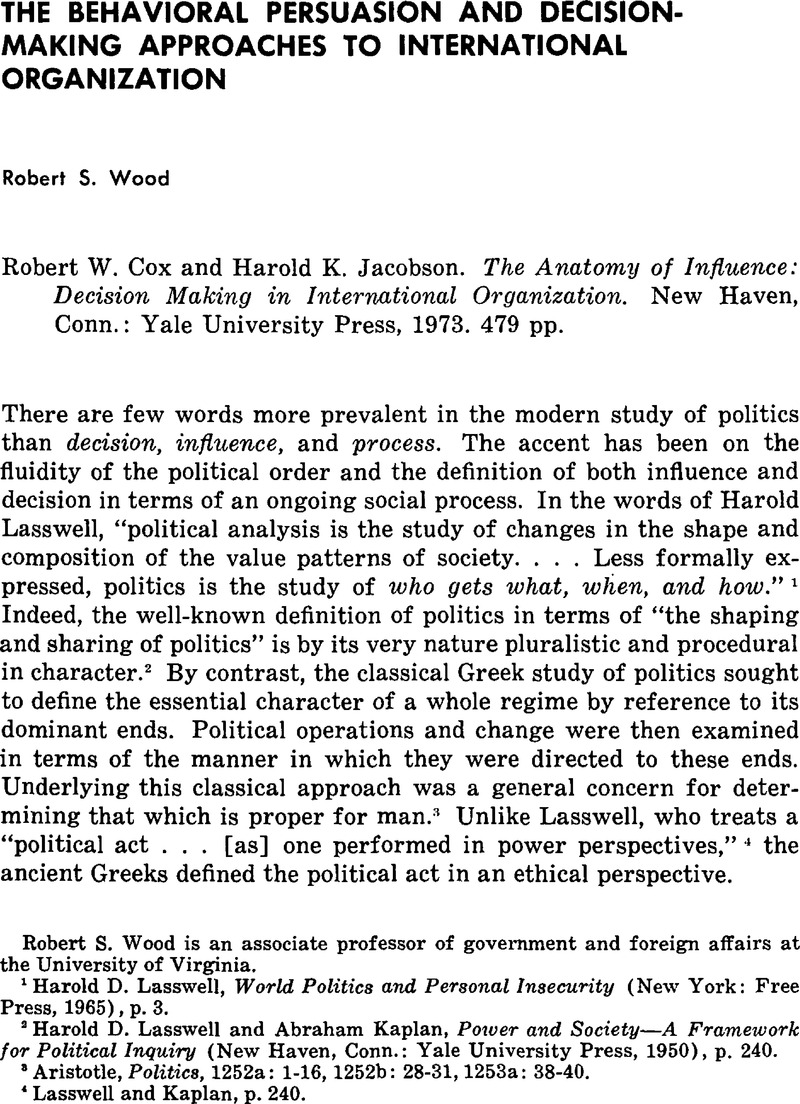No CrossRef data available.
Article contents
The Behavioral Persuasion and Decision-Making Approaches to International Organization
Published online by Cambridge University Press: 22 May 2009
Abstract

- Type
- Review Essays
- Information
- Copyright
- Copyright © The IO Foundation 1974
References
1 Lasswell, Harold D., World Politics and Personal Insecurity (New York: Free Press, 1965), p. 3.Google Scholar
2 Lasswell, Harold D. and Kaplan, Abraham, Power and Society—A Framework for Political Inquiry (New Haven, Conn.: Yale University Press, 1950), p. 240.Google Scholar
3 Aristotle, Politics, 1252a: 1–16, 1252b: 28–31, 1253a: 38–40.
4 Lasswell and Kaplan, p. 240.
5 See, for instance, Almond, Gabriel A. and Powell, G. Bingham, Comparative Politics (Boston: Little, Brown and Co., 1966).Google Scholar
6 Hoffmann, Stanley H., Contemporary Theory in International Relations (Englewood Cliffs, N.J.: Prentice-Hall, 1960), pp. 1–4.Google Scholar
7 Masters, Roger, “World Politics as a Primitive Political System,” World Politics 16 (July 1964): 595–619CrossRefGoogle Scholar; Haas, Michael, “A Functional Approach to International Organization,” Journal of Politics 27 (August 1965): 498–517CrossRefGoogle Scholar; Russett, Bruce, “Toward A Model of Competitive International Politics,” Journal of Politics 25 (May 1963): 226–47CrossRefGoogle Scholar; Alger, Chadwick, “Comparison of Intranational and International Politics,” American Political Science Review 57 (June 1963): 406–19CrossRefGoogle Scholar; and McDougal, Myres S. and Associates, Studies in World Public Order (New Haven, Conn.: Yale University Press, 1960).Google Scholar
8 Robert W. Cox and Harold Jacobson, The Anatomy of Influence, p. 3. All subsequent references are to this book and are indicated in parentheses following the quoted or paraphrased material.


